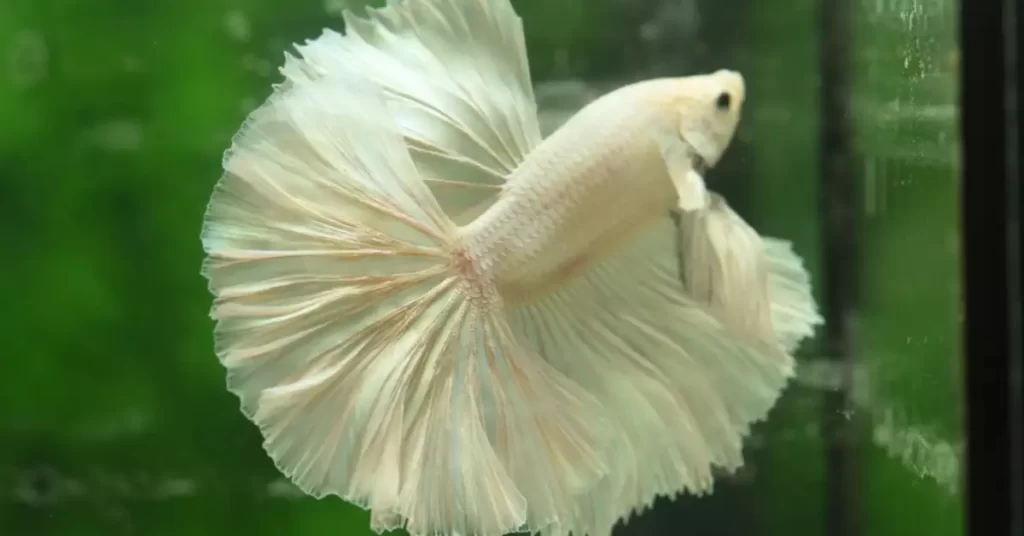Fish ownership is a popular choice for many, but one question often arises: can fish actually love their owners?
In this article, we will explore the topic in-depth, providing insights into fish behavior, their cognitive abilities, and the possibility of them forming emotional bonds. Let’s dive in!
Understanding Fish Behavior
To grasp the concept of fish potentially loving their owners, it’s essential to understand their behavior.
Fish are known to be sensitive to their environment, with some species exhibiting complex social structures and advanced cognitive abilities.
However, their behavior is primarily driven by instinct and survival needs, such as foraging, mating, and avoiding predators.
Cognitive Abilities of Fish
Recent research has demonstrated that fish possess greater cognitive abilities than previously believed.
For instance, they can learn from experience, solve problems, and even exhibit impressive long-term memory.
Despite these findings, it’s important to note that their cognitive abilities vary significantly between species and are not as advanced as those of mammals.
Fish Species and Emotional Capacity
The capacity for emotion in fish depends largely on the species. Some species, such as goldfish, are known to exhibit basic emotions like fear and stress, while others like the betta fish can display aggression.
However, the presence of these emotions doesn’t necessarily indicate that fish are capable of forming complex emotional bonds, such as love.
Pavlovian Conditioning and Fish
Fish can be conditioned through a process known as Pavlovian conditioning, where they learn to associate a stimulus (e.g., the presence of their owner) with a reward (e.g., food).
This conditioning can lead to fish displaying excitement or anticipation when their owner approaches, which can be mistaken for affection.
However, this behavior is based on the association of the owner with food, rather than an emotional bond.

Social Interaction and Bonding
While fish are generally not social animals like dogs or cats, some species do engage in social behaviors.
For example, schooling fish form groups for protection and foraging. However, these social interactions are primarily driven by survival instincts, rather than emotional connections or bonds with other fish or their owners.
Fish Memory and Recognition
Contrary to the popular belief that fish have a short memory, some species have been found to possess impressive memory capabilities.
For instance, fish can recognize and remember landmarks, other fish, and even their owners.
This ability to recognize their owners might contribute to the perception of fish “loving” their owners, but it’s important to differentiate recognition from emotional attachment.
Anthropomorphism and Our Perception of Fish
Anthropomorphism, or the attribution of human characteristics to animals, plays a significant role in our perception of fish behavior.
We might interpret fish reactions, such as swimming towards us when we approach the tank, as signs of affection. However,
it’s crucial to remember that these behaviors are often driven by instinct, curiosity, or the expectation of food, rather than genuine emotional bonds.
Creating a Positive Environment for Your Fish
While the idea of fish-loving their owners might be debatable, it’s still important to create a positive and enriching environment for them.
Providing a clean and well-maintained tank, proper nutrition, and appropriate stimulation can help ensure that your fish lead happy and healthy lives.
In turn, this can lead to them being more active, responsive, and interactive with you as their owner.
Interpreting Fish Behavior
When observing your fish, it’s important to be aware of the possible reasons behind their behavior.
While they may not be capable of experiencing love in the same way that humans or even other pets do, they can still demonstrate certain behaviors that indicate a level of comfort and trust with their owners.
Recognizing these behaviors can help you better understand and appreciate your fish for who they are, rather than imposing human emotions onto them.
Frequently Asked Questions
Do fish recognize their owners?
Yes, some fish species can recognize their owners. They can associate their owner’s presence with food or other positive stimuli, leading them to react positively when the owner approaches the tank.
Can fish feel pain or stress?
Fish are known to experience pain and stress, as they possess the necessary biological systems to perceive and respond to these sensations.
It’s important to minimize stressors in their environment and handle them with care to ensure their well-being.
How can I create a bond with my fish?
While fish may not form emotional bonds like mammals, you can still create a positive connection with them by providing a healthy environment, proper nutrition, and engaging in gentle interactions.
Over time, your fish may become more responsive and interactive with you, as they learn to associate you with positive experiences.
In Summary
While fish may not be capable of experiencing love in the same way that humans or other pets do, they do exhibit a range of complex behaviors and emotions that can make them fascinating and rewarding pets.
It’s essential to focus on providing a healthy, comfortable, and stimulating environment for your fish, which can lead to more positive interactions and a better understanding of their unique characteristics.
By appreciating them for who they are and avoiding anthropomorphism, we can build a meaningful connection with our fish and ensure their well-being.